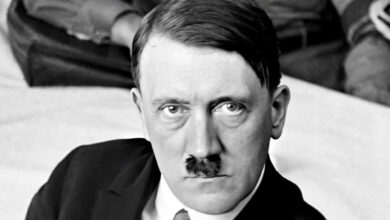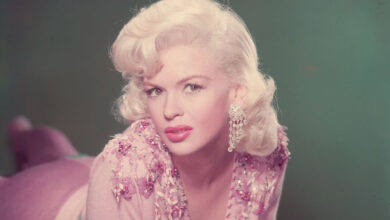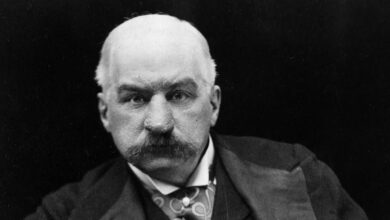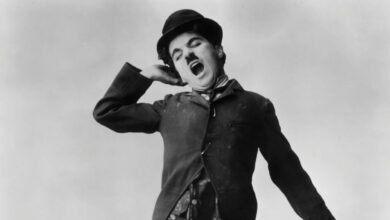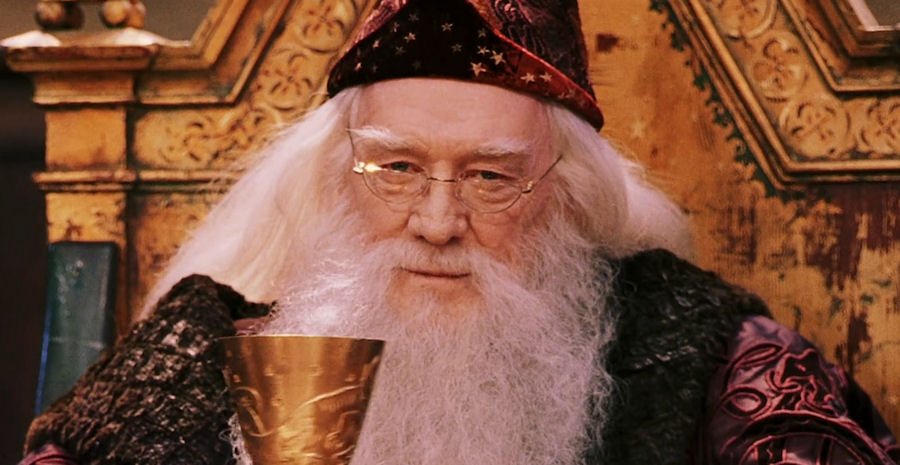
“I often sit back and think, I wish I’d done that, and find out later that I already have” – Richard Harris
Podcast: Play in new window | Download
Subscribe: Spotify | Amazon Music | Youtube Music | RSS
Richard Harris Biography
Richard Harris only accepted one of his most famous roles under threat from an 11-year old. The veteran actor had no interest in taking on a role in a series like Harry Potter as he wasn’t a fan of commitment and didn’t want to be tied to a single movie franchise.
That contribution to the world of Harry Potter would be the last role in a stage and film career that spanned half a century. A career that might have never happened if not for tuberculosis.
Richard Harris was born in Limerick, Ireland on 1st October 1930. His parents, John and Mildred were staunch Roman Catholics and Richard was to be the sixth of nine children born to them.
As a boy, Harris’ great passion and aspiration in life was the sport of rugby. A talented player, Harris excelled at it and while he was getting his education at Crescent College, he played on several Munster Junior and Senior Cup teams. His future in the sport looked to be a bright one, until that is, he caught tuberculosis and was sidelined.
After recovering from his illness, Harris moved to England. Having decided to become a director he was looking around for some appropriate training but he failed at an audition at the Royal Academy of Dramatic Art, also known as RADA and was rejected by the Central School of Speech and Drama because they felt that, at 24, Harris was too old to be a worthy prospective student.
Finally, Harris enrolled in the London Academy of Music and Dramatic Art (LAMDA) to study acting. While still a student, Harris rented the tiny Irving Theatre and directed his own production of the play Winter Journey. While critically acclaimed, the show was a financial disaster. Harris lost all of his savings and ended up homeless.
Upon graduation from the LAMDA, Harris joined Joan Littlewood’s Theatre Workshop and began to get roles in a few of their productions. Harris would spend the next decade learning his craft on stages throughout Britain and was almost completely unknown outside of theater circles for the entire period.
During this time, in 1957 Harris married Elizabeth Rees-Williams with whom he had three children, Jared, Damian and Jamie, but the couple would divorce in 1969.
In 1958, Harris made his film debut in Alive and Kicking and shortly afterward, in 1959, he was cast in The Wreck of Mary Deare. Harris hated his experience filming that movie so badly that he refused to return to Hollywood for several years.
Though he had abandoned the Hollywood system, Harris continued to appear in films. He had a memorable bit part in The Guns of Navarone in 1961 and ticked off Marlon Brando by insisting on third billing for Mutiny on the Bounty in 1962.
In 1963, Harris secured his first starring role in the film This Sporting Life. Harris took home Best Actor at the Cannes Film Festival and an Academy Award nomination for his portrayal of a rugby league football player.
He followed This Sporting Life with another lead in the Italian film Deserto Rosso, or Red Desert in 1964 and won even more attention for himself in Sam Peckinpah’s Major Dundee in 1965. In 1966, Harris played Cain in John Houston’s The Bible: In the Beginning… He also took the role of King Arthur in the 1967 musical Camelot. After the success of 1970’s A Man Called Horse, Harris was voted as the 9th most popular star in the United Kingdom.
In 1974 Harris married for the second time, this time to the American actress Ann Turkel. This marriage would also end in divorce in 1982 although Harris and Turkel remained good friends.
Despite his critical acclaim and awards demonstrating his stature as a heavyweight actor of enormous talent, Harris had a habit for taking on roles in films many believed were beneath him. One of the most infamous was the 1977 Jaws-inspired flop, Orca.
Harris took a sabbatical from acting in the 1980s but would return in 1990 for The Field, a film which brought him another Academy Award nomination. Two years later, he would also appear in Clint Eastwood’s eulogy to the Western, Unforgiven which won the Academy Award for Best Picture in 1992. Harris’ next Best Picture role came in 2000’s Gladiator.
In 2001, Harris was approached with what would ultimately be the last role of his career. Production had begun on a film series based around the massively popular Harry Potter novels. Harris was offered the role of Professor Albus Dumbledore and, like Sean Connery before him, turned it down. Harris knew his health was in decline and he had no interest in starting something he couldn’t finish.
That wasn’t a good enough excuse for his granddaughter though. When she learned her grandfather had the opportunity to be in a film of her favorite book, she threatened to stop speaking to Harris if he didn’t take the part. Though he was concerned that the role would overshadow everything else in his career, Harris relented and played the role in Harry Potter and the Sorcerer’s Stone in 2001 and Harry Potter and the Chamber of Secrets in 2002.
In August of that year, Harris was diagnosed with Hodgkin’s disease after having been hospitalized with pneumonia. He died on 25th October of 2002 at the age of 72, just two and a half weeks before the premiere of Harry Potter and the Chamber of Secrets.
Podcast: Play in new window | Download
Subscribe: Spotify | Amazon Music | Youtube Music | RSS

